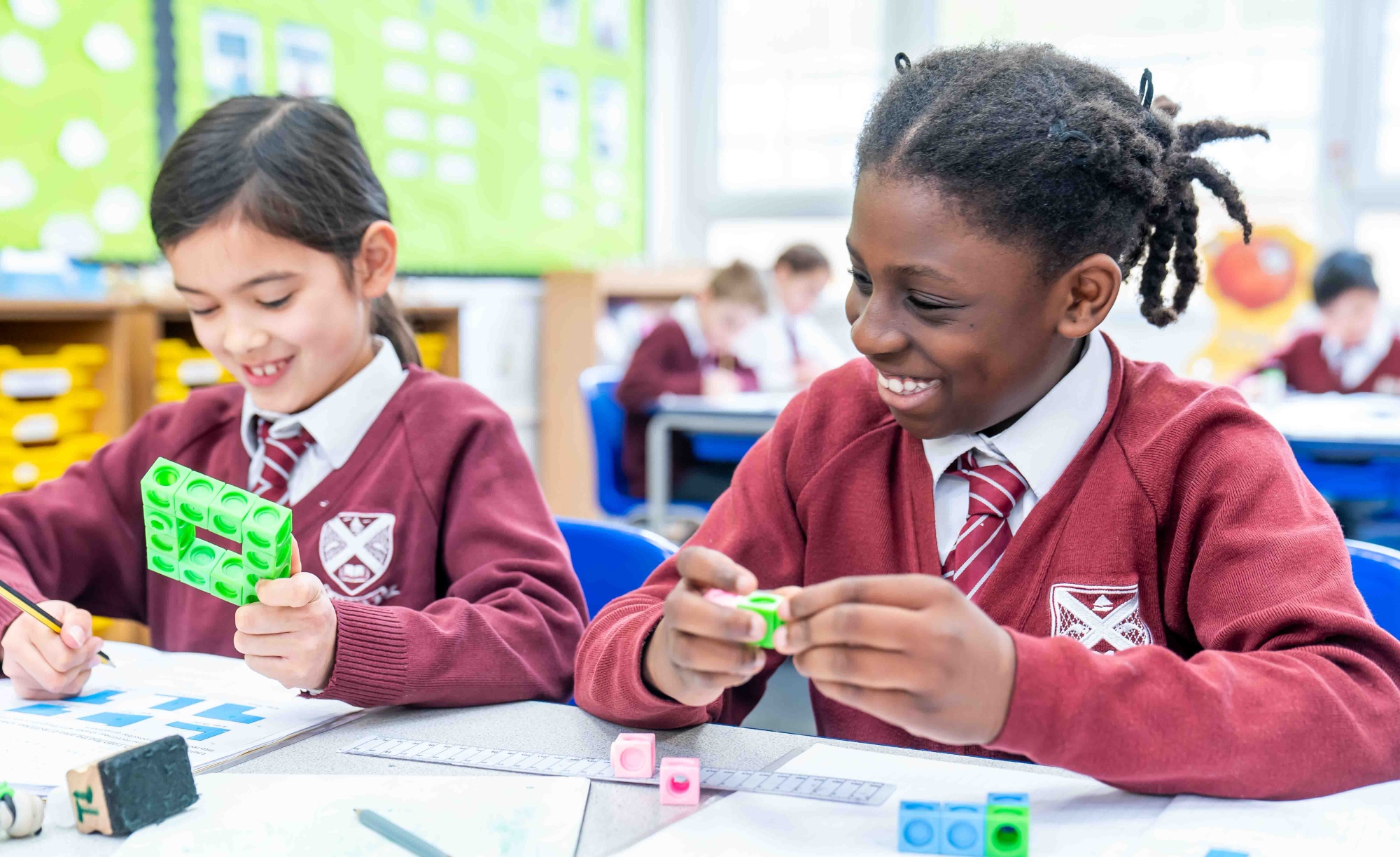Maths

Intent
At St. Andrew’s we believe that all pupils can achieve in mathematics. At each stage of learning, we aim to deliver an inspiring and engaging mathematics curriculum which enables children to be numerate, creative, independent, inquisitive, enquiring and confident mathematicians.
Our goal is to ensure that all pupils:
- Become fluent in the fundamentals of mathematics, including through varied and frequent practice, so that pupils develop conceptual understanding and recall and apply knowledge
- Reason mathematically by following a line of enquiry, conjecturing relationships and generalisations, and using mathematical language
- Can solve problems by applying their mathematics to a variety of routine and non-routine problems
Mathematics is taught through a ‘Mastery’ curriculum which involves employing approaches that help children to develop a deep and secure knowledge and understanding of mathematics at each stage of their learning, so that by the end of every school year or Key Stage, children will have acquired mastery of the mathematical facts and concepts they’ve been exposed to, equipping them to move on confidently and securely to more advanced material.
Implementation
Mathematics is usually taught in specific lessons, but through our creative approach to teaching and learning we also seek to explore and utilise further opportunities to use and apply mathematics across all subject areas.
In order to maintain a consistent approach across the school and to ensure that all objectives meet the National Curriculum we follow the Enfield Local Authority Medium Term Maths Plans.
Our mastery approach to maths:
- Has number at its heart. A large proportion of time is spent reinforcing number to build competency.
- Ensures students have the opportunity to stay together as they work through the curriculum as a whole group.
- Sets challenges to extend pupils, ensuring that a depth and breadth of each key concept is gained.
- Provides plenty of time to build reasoning and problem solving elements into the curriculum.
All students, when introduced to a key new concept within Maths, will have the opportunity to build competency in this topic by taking the Concrete – Pictorial – Abstract approach, described below.
Concrete
Children will have the opportunity to use concrete objects and manipulatives to help them understand what they are doing.
Pictorial
Children will then build on this concrete approach by using pictorial representations. These representations can then be used to reason and solve problems.
Abstract
With the foundations firmly laid, children will be able to move to an abstract approach using numbers and key concepts with confidence.
Beyond the Curriculum
- Our innovative use of ICT supports the learning of multiplication tables and promotes increased engagement both at school and at home.
- Enterprise opportunities are planned for to enable pupils to tackle maths tasks in a real life context.
- Maths days/events are celebrated.
- Pupils are provided with weekly 'MyMaths' home learning and this also provides opportunities for families to view lessons before completing the tasks.
- Maths Booster Groups.
Impact
The impact of our Mathematics curriculum is for the children to be mathematically proficient and also to develop an enjoyment of mathematics and a sense of achievement. Each and every child should achieve mathematical skills to give them the confidence to apply these in their everyday life. We aim for every child to have a quick recall of facts and procedures. Children will have a flexibility and fluidity which will help serve them in future life experiences and they will learn to make links in their learning. These skills will enable the children to move between different concepts and representations of mathematics and recognise relationships and make connections.
What will this look like?
Through pupil voice we will see:
- Pupils express how they answer different mathematical problems using key mathematical vocabulary
- Pupils explain mental and written calculation and when they would use them.
- Pupils explain their mental processes.
- Pupils discuss how they have shown resilience during lessons and turned their mistakes in to successes.
Through learning walks we will see:
- The teaching of Maths being applied to real life scenarios.
- Pupils use mathematical resources confidently.
- Pupils will tackle mathematical problems confidently without the fear of making mistakes.
- Pupils discussing their learning and explain how it links to previous lessons.
- Teachers using mathematical vocabulary to support pupil’s development of mathematical language.
- Teachers adapt teaching to ensure misconceptions are identified and addressed.
In the pupils' learning we will see:
- A resilience in Maths demonstrated in problem solving.
- Opportunities to express themselves in written and mental methods.
- Reasoning using the correct mathematical vocabulary.
- Trial and error strategies to build character when solving a problem.
- Take pride in their learning and present work of a high standard.
- Scaffolded activities that allow all pupils to make progress.
- Pupils independently applying their learning when assessed.

